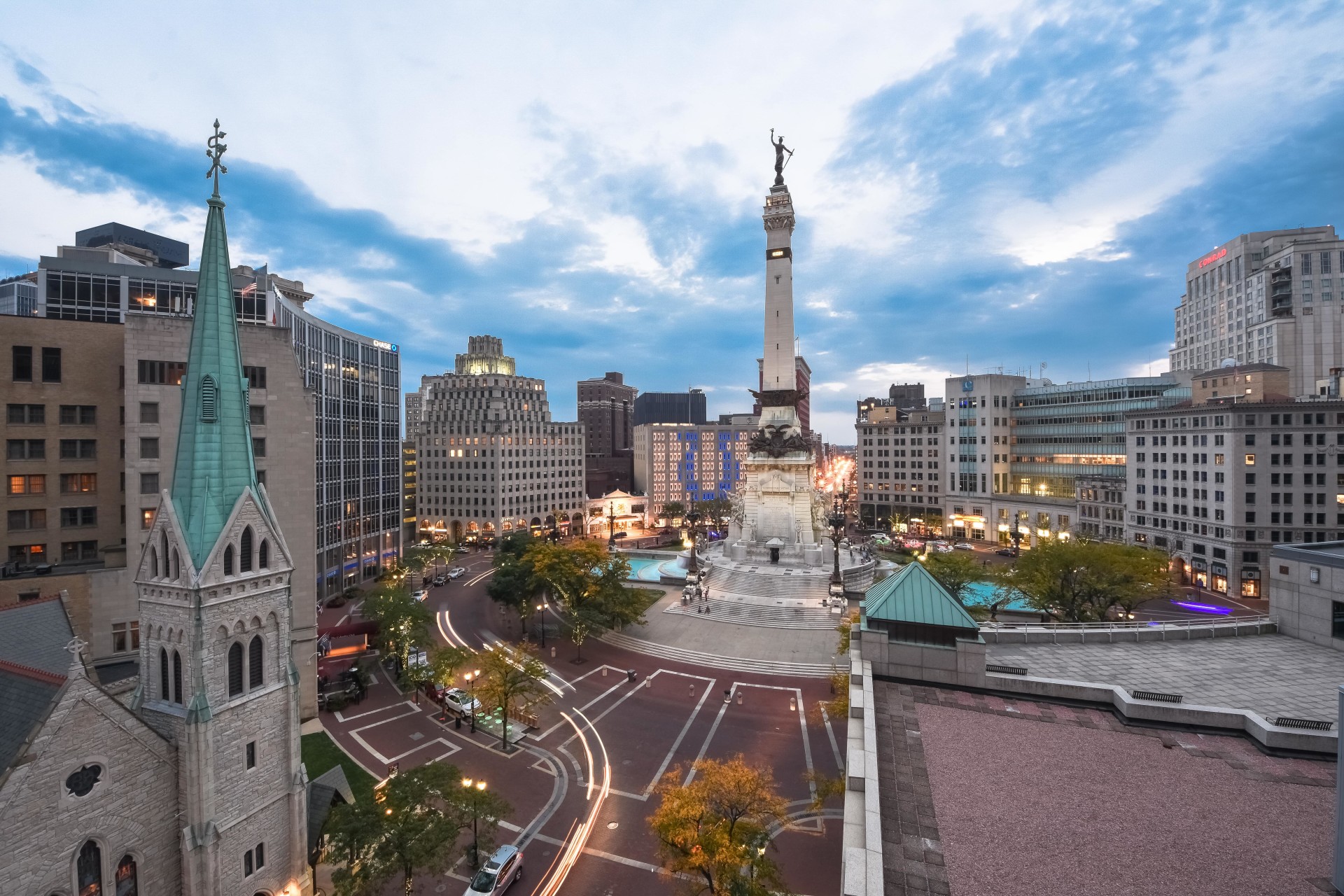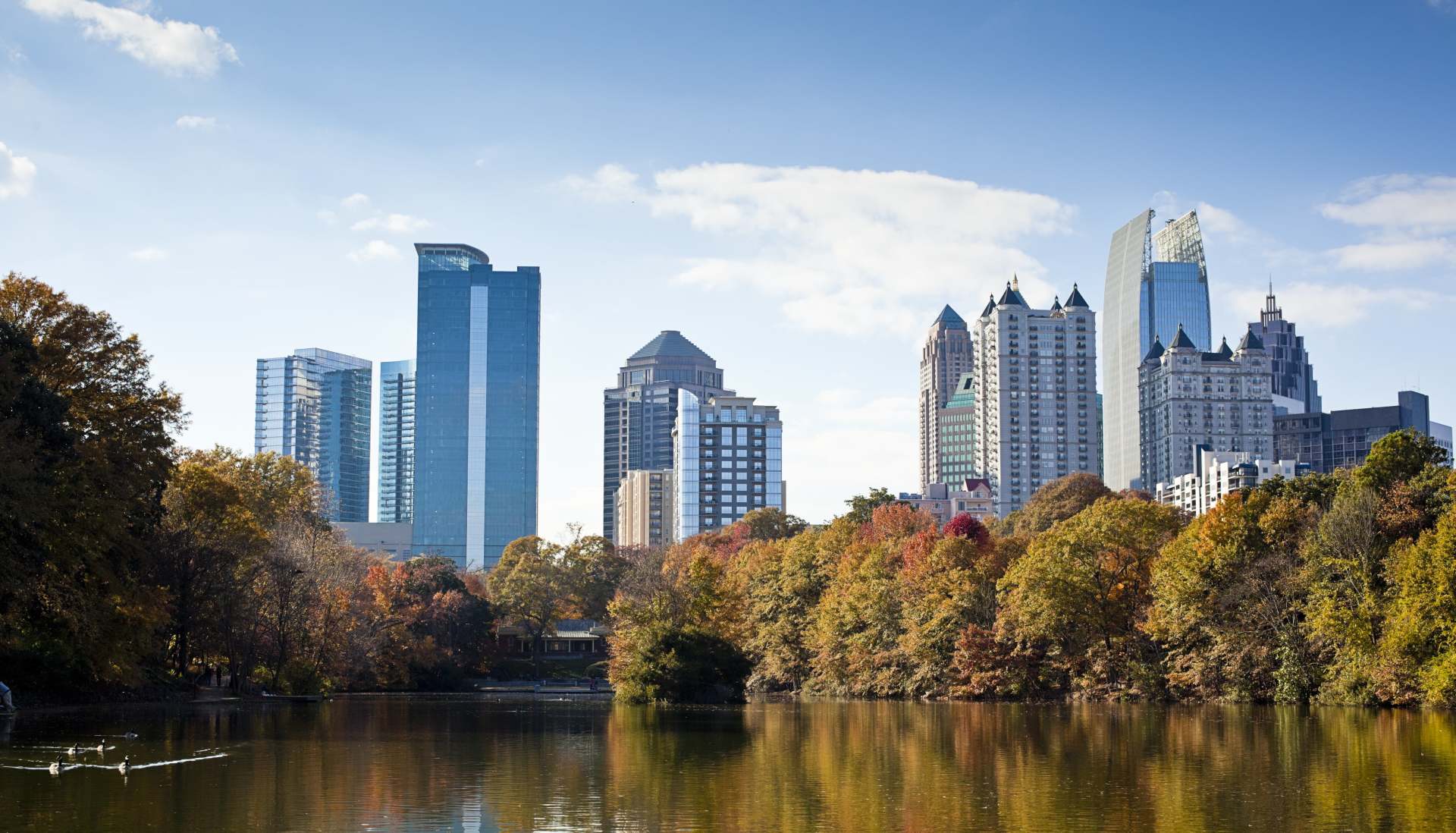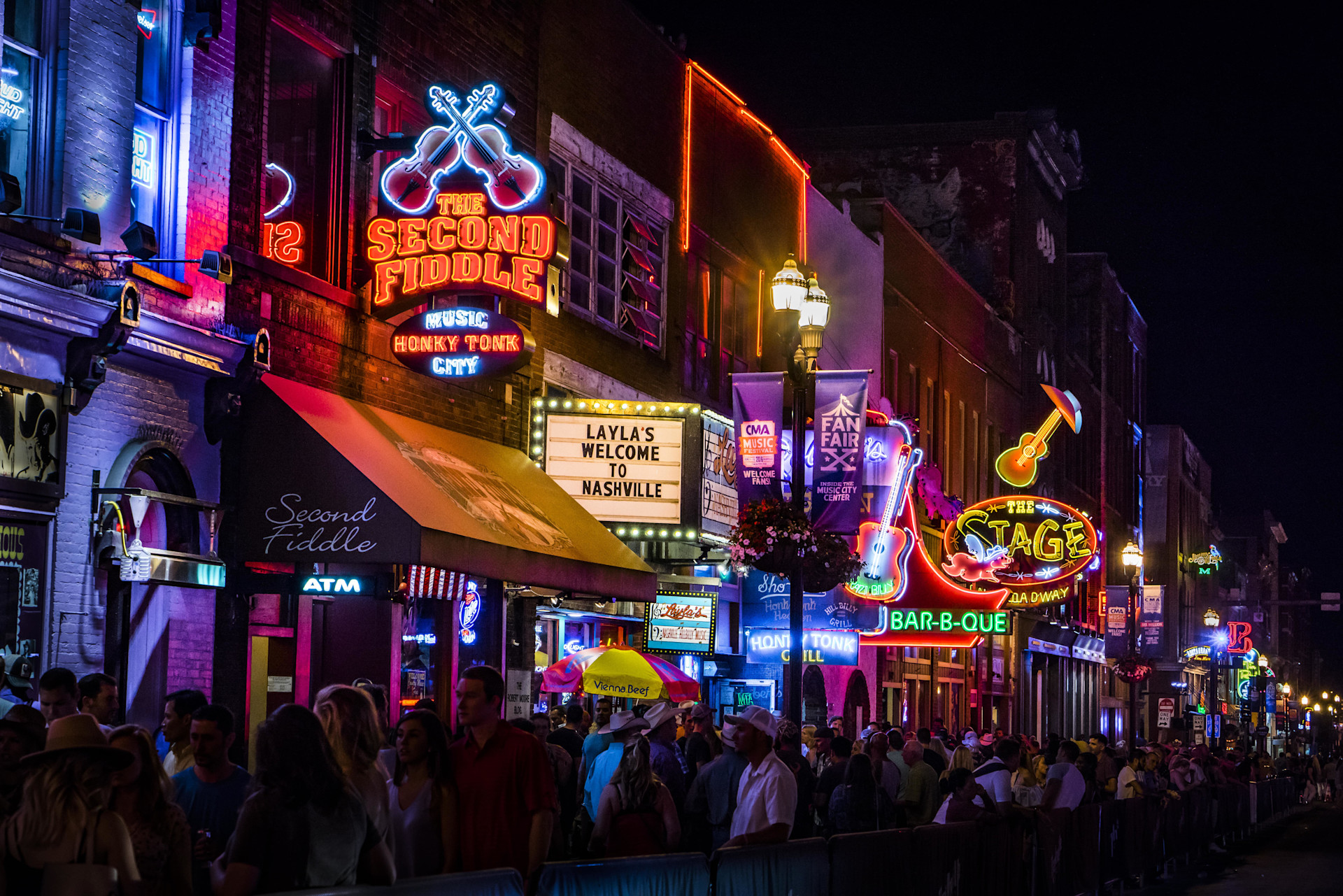It was a few years ago that Music City, U.S.A. took the title from Vegas for the site of the most bachelorette bashes.
Tennessee’s capital has long been the capital of country music, but its position as the premier prenuptial party city for America’s $72 billion wedding industry is another indication of how it has spread beyond its musical roots.
In 2021, a record-breaking 2.8 million weddings took place at an average cost of $21,600, significantly less than in previous years. But spending on bachelorette parties, especially in Nashville, picked up, according to Mallory Strange, founder of a local bachelorette party–planning outfit.
Strange started her company, Bach Babes, in October 2020. Nine months later, in July 2021, she told CNBC that she’d surpassed $100,000 in revenues: “Our growth is exponential.”
But Nashville is best known for country music — it garnered the name Birthplace of Country Music after fostering the early scene in the 1950s. As the genre built a fan base, everyone wanted a piece of the action and a chance at fame on stages like the Grand Ole Opry.
From Patsy Cline (who has her own museum in town, in a building named after Johnny Cash) to Taylor Swift, name a country star and they’ve most likely lived and performed here. The Man in Black made his Grand Ole Opry debut in 1956, and in 1966, a young spitfire named Dolly Parton had her first recorded hit. The Country Music Hall of Fame opened in 1967.
But there’s more to Nashville than booting, scooting and sex-on-the-beach shots, and the real estate market has caught the fever. Like all else in Tennessee’s capital right now, it’s on fire.
The truth about Nashville's hot real estate market
The biggest downside to Nashville’s housing market is one shared by its Sunbelt neighbors, such as Charlotte and Atlanta: the ongoing stampede by those leaving big cities like New York, Los Angeles and San Francisco is pushing up prices.
According to Greater Nashville Realtors, home prices in the metropolitan area broke records in 2021, and continue to go up in 2022.
- The median list price for a single family home is $446,175, up from $357,150 last February.
- There are fewer homes for sale. 1,338 sales were pending at the end of February this year, in comparison to 3,229 pending sales at the same time in 2021.
- Average price appreciation between early 2021 and early 2022 was 23.7 percent. “And we’re probably going to see the same again this year,” says Steve Jolly, Greater Nashville Realtors’ 2022 president.
- Inventory for the Middle Tennessee region was down for the overall market and for single family homes. Residential home inventory at the close of February was 3,378 — a 25 percent reduction from February 2021’s inventory of 4,477.
- Homes are spending a median 28 days on market, down from 37 year-over-year.
“It’s definitely a seller’s market,” says Mary Nell “Murn” Roberts, an agent with Compass RE, stating that in desirable areas, single family buyers may pay $500 to 600 per square foot, and it isn’t unusual for a listing to bring 20 or more offers.
“It’s crazy,” she says.
Rents are high, too. In January, the Tennessean, the city’s main daily paper, told of “‘Unprecedented times,’ as Nashville rents soar to new heights.” The paper cited Zillow data from December 2021, noting that typical rent had risen to $1,788, up 18.9 percent over a year previous. The deficit of homes on the market means newcomers, like it or not, are paying it.
Nashville is friendly to businesses and musicians
Nashville is a city to watch. In a recent report, the research institute Wealth-X put the formerly honky-tonk town among the globe’s top 30 growth cities.
A longtime magnet for healthcare companies as well as songwriters and guitar players, Nashville is poised to make its mark as a tech hub as well, as Amazon, Oracle (currently building a $1.2 billion Cumberland Riverfront campus), NTT Data, AllianceBernstein and other corporations take up residence.
“Businesses are coming to Nashville because Tennessee is a really friendly place to do business,” says Jolly. “We have investors from across the nation, as well as international players, putting money in Nashville.”
Regular people are following. A 2021 Bloomberg analysis of LinkedIn data saw Greater Nashville beating other destination cities as it drew the second-largest migration of tech talent in the U.S. between May 2020 and April 2021. (Austin was number 1.) The wave resulted in a net increase of 155 software and information technology workers per 10,000 residents.
The state of Tennessee, which has no income tax and is centrally located in the South, is a perfect spot for business ventures looking for a national profile. With its four seasons (it even gets snow in winter) and gorgeous greenery, it draws tourists and the retirement crowd.
Around Nashville, all that comes with a catchy beat and crispy-fried, sauce-soaked hot chicken on top.
Nashville's history steeped in conquest
Founded in 1779 and named for Francis Nash, a Continental Army general, Nashville won designation as Tennessee’s capital in 1843. In 1862, it became the first Confederate capital to surrender to Union Army troops.
At that time, the city’s population was one-fourth enslaved and free Black citizens. Nashville had long been an active center for the slave trade, according to research by Learotha Williams Jr., a professor of history at Tennessee State University
Williams was part of a faction that succeeded in having a marker for the Nashville slave market placed downtown, just a few blocks from City Hall, in 2018.
“A hundred and fifty some-odd years ago,” he said at the sign’s unveiling, “people were forced to come here. They did not have a choice.”
After the war, Nashville entered a new era. The city, situated on the winding Cumberland River, emerged as a base for manufacturing, its industries producing iron, milled lumber, flour, machinery and cotton, not to mention in-demand products like tobacco and liquor.
When did Nashville real estate start growing?
And so it grew. Nashville, which serves as Davidson County’s seat and in large part shares its footprint — as well as a consolidated city government — has spread far and wide.
The city now spans some 500 square miles. In nearly two and a half centuries, the skyline, industry and level of diversity have all evolved. For example, Nashville is home to approximately 15,000 Kurdish residents, many descended from people who came to the U.S. as refugees in the 1970s, as well as locals of all other races and religions.
The 2020 Census put Davidson County’s population at close to 716,000, or 1,243 people per square mile — almost 15 percent more than a decade before. The Tennessean equated that influx to a new resident every hour.
Nashville proper, known as Nashville-Davidson, has approximately 700,000 residents and is the 21st-most-populous city in the U.S. and number 4 in the Southeast. U.S. News and World Report calls it the 23rd-best place to retire in America, 30th-best place to live, and 25th-fastest-growing place.
A full-scale architectural knock-off of the Parthenon has led some to call it the Athens of the South, and it is an educational hub, home to 22 colleges and universities. More than 43 percent of residents hold a bachelor’s degree, according to the 2020 U.S. Census — beating the national rate of 36 percent.
The city also boasts the most churches per capita nationwide — more than 700 — earning it the nickname “Buckle of the Bible Belt.”
It’s affectionately known, too, as Smashville and Gnashville, references to the strength of the Nashville Predators pro hockey team and to its saber-tooth tiger mascot; Cashville, which was coined by native rapper Young Buck; and Nashvegas, a nod to its glitzy strip comprising Lower Broadway and the Honky Tonk Highway.
Nashville's quality of life
“There is a really palpable pace of growth here,” says Margaret Littmann, author of the guide 52 Things to Do in Nashville (Moon), released in February. Littman, who is from Idaho, moved to her adopted city in 2007, set up her writing studio and became a first-time homeowner in the now superhot, artsy East Nashville area.
“It’s the most creative place I’ve lived,” Littman says of the city, adding that the culture welcomes people to come and try out ideas.
“People in Nashville do crazy things,” she continues. “I love that.”
More than a century as a make-it-or-break-it music mecca means failure is more a shrug than a stigma in Nashville. People give their best idea, or song, a shot, and if it fails, move on to the next one.
And some offbeat efforts find a home in the city. Amelia’s Flower Truck, a fleet of vintage pickups, rolls up anywhere, anytime, to hawk fresh-cut blooms. The Donut Distillery sells boozy, whiskey-glazed donuts and draws a crowd daily.
And Bach Babes, which finds lodging, tapes up decorations, books tours and secures restaurant reservations for girl posses hitting the town, hauls in about $19,000 a month, cashing in on the city’s raised profile among tourists.
“For some reason, it’s just a really popular place for bachelorette parties,” Littman muses.
Nashville has a thriving scene for artisanal food and crafts, and locals are loyal to indie coffee shops, bakers and other businesses.
City districts desired by locals and arrivals, Littman says, include the neighborhoods of East Nashville (she lives in Inglewood, a peripheral settlement that was once a rustic summer place for city folk), Germantown to the north, Green Hills to the south, Hillsboro Village/Belmont for proximity to Belmont and Vanderbilt Universities, and further west, areas called West End and the Nations, a newer, family-friendly district currently undergoing significant development.
Littman points to one quirk of many area homes that is also a creative perk: “Many houses have home music studios.”
A city at the heart of the Southeast with room to grow
Nashville boasts that it’s just a two-hour flight from nine of the United States’ top 10 metro areas, and Littman says her research suggests that half of the country’s population lives within a day’s drive of the city. (Dallas is just over a 10-hour drive west.)
“Just outside of Nashville, it gets rural pretty quickly,” Jolly says. “The most undeveloped land is north and northwest of downtown. I think we’ll see it developed more and more over the next decade.”
As the city has pushed out — even more in the last two years as remote work grew with the Covid-19 pandemic — its rural outer ring has become more and more desirable to homeseekers and developers. Franklin, Smyrna, Hendersonville, Brentwood and Murfreesboro are among the most sought and built-up suburbs.
But Nashville’s metropolitan area, which stretches to Tennessee’s northern state line, comprises nine counties in all: Cheatham, Dickson, Maury, Montgomery, Robertson, Rutherford, Sumner, Williamson and Wilson.
Boasting a population of 1.9 million, the area that comprises them, shaded on commerce maps as “Middle Tennessee,” is the largest metro area within the five-state region.
Jolly points to Springfield, Whitehouse, Fairview, Columbia, Dickson and Ashland City as up-and-coming communities. He recommends infill build-to-rent or renovate-to-rent as a preferred approach over flipping.
“It’s hard to find deals here in Nashville,” he says.
Nashville has challenges, but lots of upside
Like other southern states, Tennessee is seeing regular tornado activity and other climate events. Nashville suffered significant damage due to both a 2010 flood and a 2020 tornado that hit the city’s downtown area.
But Littman, the guidebook writer, feels the good outweighs the bad. The city’s festivals, like Tin Pan South, CMA Fest and Bonnaroo Music & Arts Festival, not to mention Nashville Pride, draw tons of visitors, but those who are staying are here for the beauty of the area and proximity to nature, including mountain peaks and waterways.
“There are so many transplants here,” Littman says. “Anything you want is accessible.”
Despite head-scratching bad news — Republican gerrymandering in the city’s congressional districts, low Covid vaccination rates — mixed in with the good, this city is bubbling over.
Willie Geist, MSNBC’s Morning Joe show co-anchor and a Vanderbilt graduate, is a fan.
“Nashville, man. It’s the place to be,” he says.



